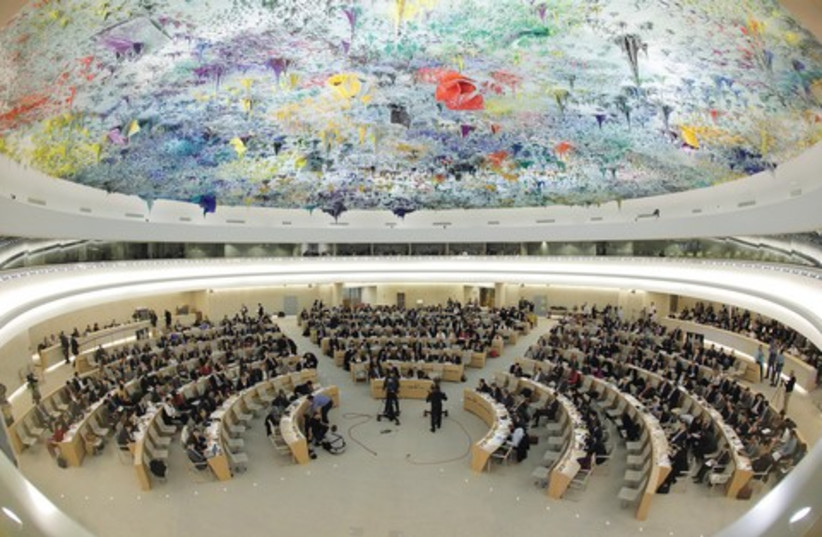WASHINGTON – Ambassador Michele Sison, assistant secretary of state for international organization affairs, testified in Congress on Tuesday on the Biden administration’s decision to return to the UN Human Rights Council, as well as the council’s anti-Israel bias.
“We need the UN at its best,” she said at the House Foreign Affairs Subcommittee on International Development, International Organizations and Global Corporate Social Impact. “That means a UN dedicated to its founding ideals, and committed to transparency, accountability, and a culture of reform, a UN that rejects anti-Israel bias, antisemitism and racism in all its forms – a UN that promotes the universality of human rights, humanitarian principles, sustainable development and cooperation among nations.”
In October, the UN General Assembly elected the US to the Geneva-based Human Rights Council (UNHRC), more than three years after the Trump administration quit the 47-member body over its chronic bias against Israel and a lack of reform.
Sison said that the first session since the US rejoined the council starts February 28, “with much ahead for us to accomplish, including renewing special rapporteurs on Iran, Burma and North Korea, and the Commission of Inquiry on Syria.”
She also highlighted the need to support resolutions reinforcing the freedom of religion or belief, the human rights of members of minority groups and persons with disabilities, and highlighting other country-specific human rights crises, including in Belarus, South Sudan and Nicaragua.

“At the same time, any discussion of the HRC must of course also recognize its persistent, corrosive anti-Israel bias – a bias that the administration has committed to confront aggressively wherever and whenever it appears,” Sison said. “That means being at the table to advocate on Israel’s behalf, working with friends and allies, as well as with non-traditional partners. It means engaging continually with the Office of the High Commissioner for Human Rights and HRC member states to make clear US opposition to problematic anti-Israel mandates, including the open-ended Commission of Inquiry. It means redoubled efforts to build a community of member states that is ready to finally tackle this total waste of the council’s time – including by minimizing and eventually eliminating Agenda Item 7 and other resolutions that unfairly target Israel.”
It was reported last week that the Biden administration is also interested in rejoining the UNESCO. Both Israel and the US stopped paying their dues in 2011, after it became the first organization to recognize Palestine as a state. Both countries lost their voting rights as a result.
The US decision to halt funding was mandated by a congressional edict that prevents financial support to UN bodies that grant full membership to non-state actors such as the Palestinian Authority.
Asked about the prospects of US return to the UN body, Sison said, “Should the administration decide to rejoin UNESCO, we will be of course working to ensure that the US does not permit any disproportionate focus on Israel as part of our engagement with UNESCO.”
She said that her bureau supports strong US leadership at the UN and across multilateral venues to advance US national interests, and drive the reforms needed to ensure the effectiveness of international organizations to promote international peace and security.
“We look hard at UN and international organization management and budgeting practices and will make sure that US taxpayer dollars are well-spent with regard to our multilateral contributions,” Sison said. “We continue to insist on effective UN peacekeeping operations that advance political solutions and have realistic and achievable mandates.”